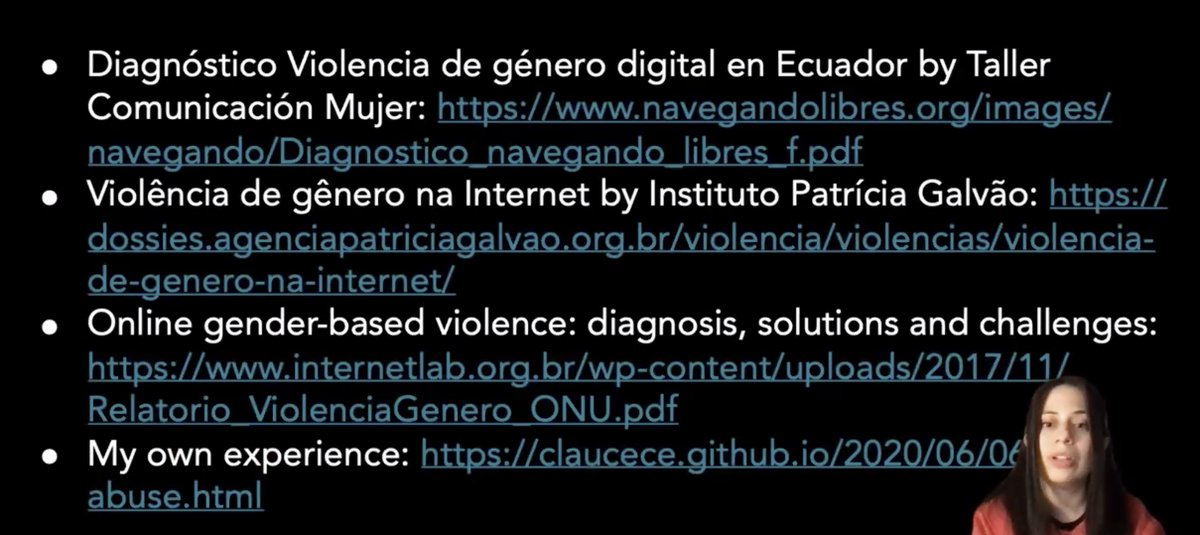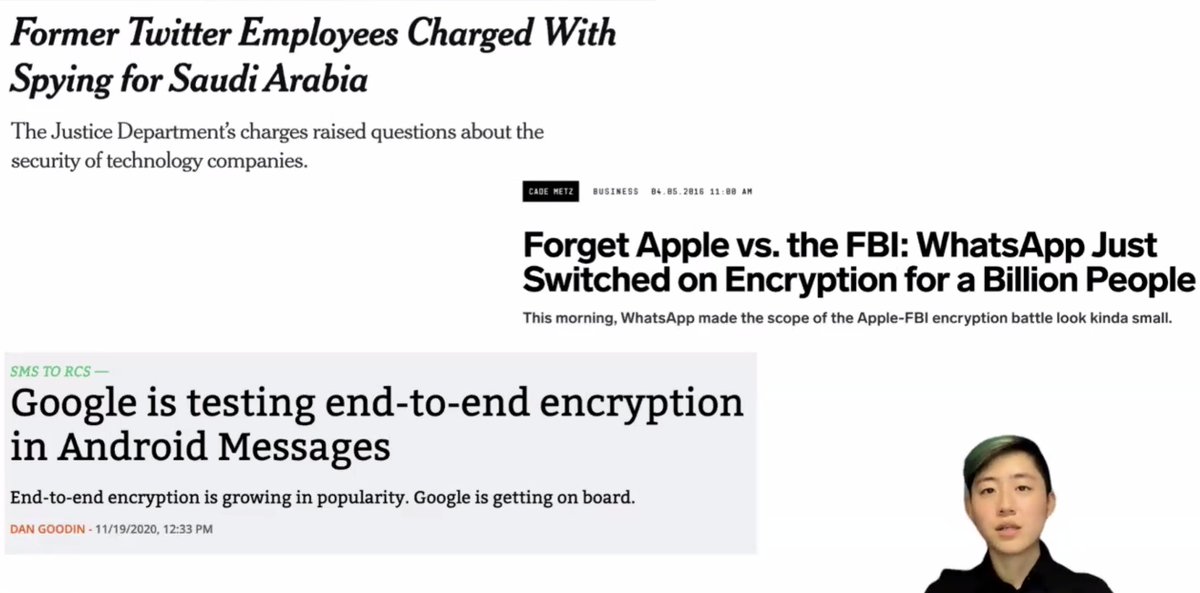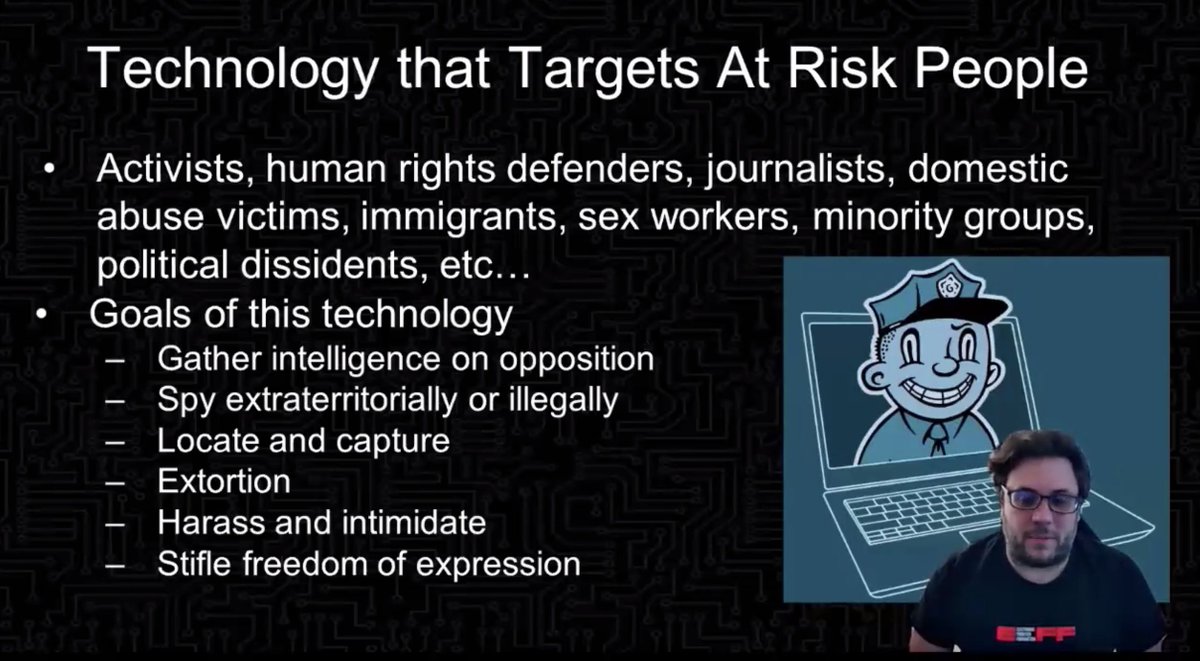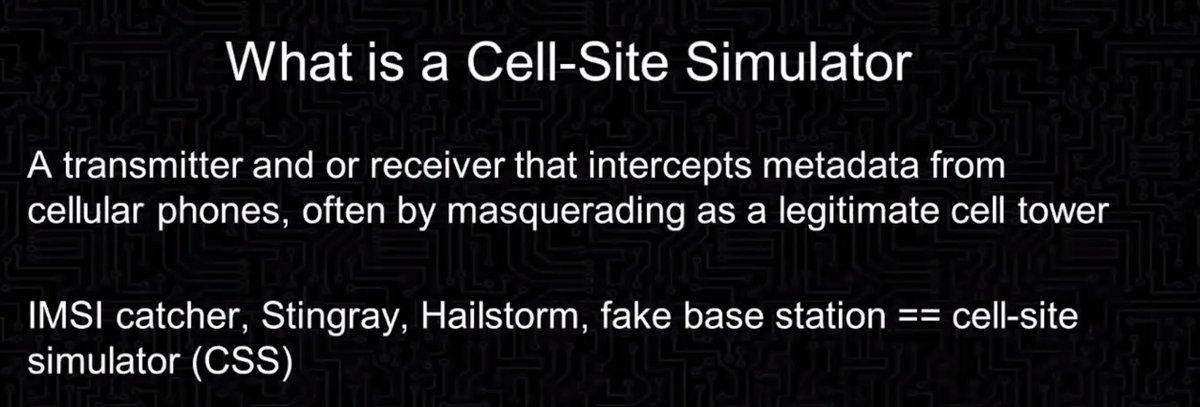
Kicking off the final session of today at #enigma2021: Sofia Celi with ""I THOUGHT I WAS BEING STRONG WITH A COMPLICATED PERSON": THE TALES OF INTIMATE GENDER-BASED ONLINE ABUSE IN THE GLOBAL SOUTH"
[Content disclaimer: difficult content.]
usenix.org/conference/eni…
[Content disclaimer: difficult content.]
usenix.org/conference/eni…
The way people use technology to abuse others is different in the global south.
This talk is a reminder that we can work together to change this.
This talk is a reminder that we can work together to change this.

Where does one begin?
From a personal experience to a shared experience to a community experience to a global situation
This started from my personal experience.
From a personal experience to a shared experience to a community experience to a global situation
This started from my personal experience.

The people who use technology to perpetuate gender-based violence are often not sophisticated... but they are often effective.
Gender-based violence if the first cause of death of women all over the world. It is happening both in the global north and south.
Gender-based violence if the first cause of death of women all over the world. It is happening both in the global north and south.

Research is focused on the global north (malware, spyware), shows that attackers use phishing and social engineering
What is the state in the global south (specifically latin american region)
What is the state in the global south (specifically latin american region)
Sexual violence [this is what I have usually seen classified as nonconsentual sexual imagery]
"They sent photos of me, intimate photos, to the WhatsApp that we have as a group at the university. They took those photos without my wanting them to"
"They sent photos of me, intimate photos, to the WhatsApp that we have as a group at the university. They took those photos without my wanting them to"

The survivor was forced not to tell anyone because it is shameful to be seen as a sexual being in any way in this society.
The society is very misogynistic.
A survivor who committed suicide said "Sorry if I wasn't the perfect daughter" because of this shame
The society is very misogynistic.
A survivor who committed suicide said "Sorry if I wasn't the perfect daughter" because of this shame

If women are public about the struggle or publicly a feminist you will be targeted by shame and violent acts.
Shame:
* sending sexual imagery
* hate speech
* escalates to physical violence

Shame:
* sending sexual imagery
* hate speech
* escalates to physical violence
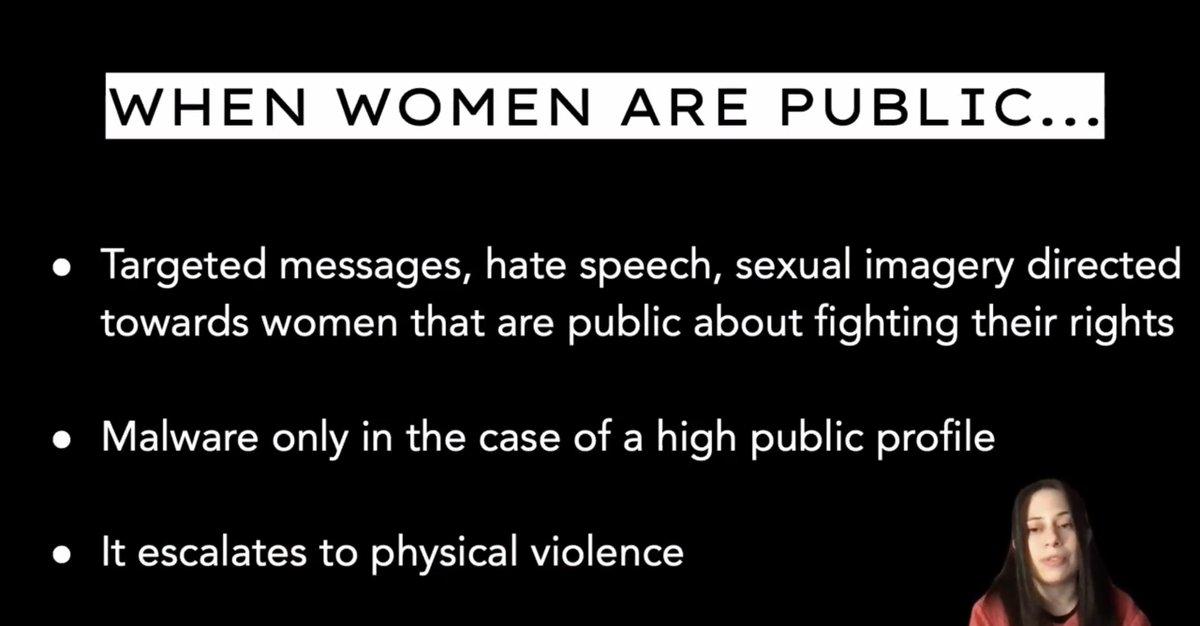

Women are:
* coerced into giving up passwords
* denied the use of digital devices
* denied 'digital literacy'
* denied access to digital education
* coerced into giving up passwords
* denied the use of digital devices
* denied 'digital literacy'
* denied access to digital education

The future
* need research that takes into account different regions
* privacy laws don't take gender-based violence into account
* research focusing on malware isn't enough
* concerns raised to platforms don't raise a response
* sharing of intimate media should be rethought
* need research that takes into account different regions
* privacy laws don't take gender-based violence into account
* research focusing on malware isn't enough
* concerns raised to platforms don't raise a response
* sharing of intimate media should be rethought

• • •
Missing some Tweet in this thread? You can try to
force a refresh




